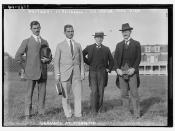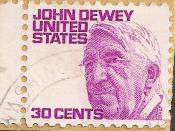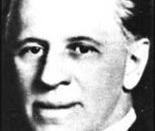The Drift Towards War "Lead this people into war, and they'll forget there was ever such a thing as tolerance. To fight, you must be brutal and ruthless, and the spirit of ruthless brutality will enter into the very fiber of national life, infecting the Congress, the courts, the policeman on the beat, the man in the street."
It is one of history's great ironies that Woodrow Wilson, who was re- elected as a peace candidate in 1916, led America into the first world war. With the help of a propaganda apparatus that was unparalleled in world history, Wilson forged a nation of immigrants into a fighting whole. An examination of public opinion before the war, propaganda efforts during the war, and the endurance of propaganda in peacetime raises significant questions about the viability of democracy as a governing principle.
Like an undertow, America's drift toward war was subtle and forceful.
According to the outspoken pacifist Randolph Bourne, war sentiment spread gradually among various intellectual groups. "With the aid of Roosevelt," wrote Bourne, "the murmurs became a monotonous chant, and finally a chorus so mighty that to be out of it was at first to be disreputable, and finally almost obscene." Once the war was underway, dissent was practically impossible. "If you believed our going into this war was a mistake," wrote The Nation in a post-war editorial, "if you held, as President Wilson did early in 1917, that the ideal outcome would be 'peace without victory,' you were a traitor." Forced to stand quietly on the sidelines while their neighbors stampeded towards war, many pacifists would have agreed with Bertrand Russell that "the greatest difficulty was the purely psychological one of resisting mass suggestion, of which the force becomes terrific when the whole nation is in a state...


